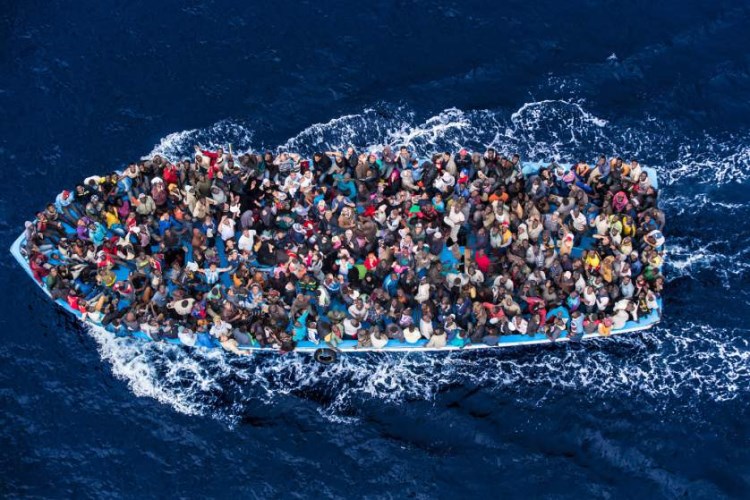 |
| The many forgotten Africans seeking European asylum. |
As thousands of refugees and migrants move across Europe, many are making use of technology in order to make their journey safer and share life-or-death information. The migrants, many of whom are from Syria, displaced by the civil war, as well as Afghanistan and Eritrea, are using smartphones to keep in contact with relatives and each other, while using GPS to find their way around Europe.
According to Paul Donohoe, from the International Rescue Committee (IRC), a large number of refugees have smartphones, which are proving to be a vital resource. "If they lose their phone, that's quite a challenge," explained Donohoe, speaking to CNBC. "They have to get a new one so they can communicate with their family."
Contrast their plight to that of Africans landing on Europe's shores. The conflicts that have driven them to foreign lands are no less violent, but media and world attention is more closely tracking the Syrian civil war. Actually, Africans are often worse off than the Syrians, with no cell phones or any possessions for that matter if and when they reach European shores. Is it racism that explains the difference? Some suggest this may be the case:
Far different from the Syrians clambering off boats in Greece, the Africans land in Sicily penniless and empty-handed. When I ask to see what they carried with them, most look puzzled, then point to the clothes on their back. “I arrived with nothing, not even my documents,” said Mandjo, 16, from Guinea, who fled when religious violence destroyed his village. What little he grabbed as he fled was lost to bandits along the way.Now, the plight of African refugees like Mandjo risks getting lost amid the Syrian refugee crisis in Europe, aid officials say. “It’s important to us that Europe is now beginning to talk about opening their borders and welcoming refugees,” says Giovanna Di Benedetto of Save the Children in Sicily. “But it is not only Syrians who have to be welcomed.”To underscore her point, Di Benedetto whips out her iPhone to show me photos of dead African infants whose bodies washed ashore on a beach off Zuwara, Libya on August 28, when their smugglers’ boat capsized. About 200 people drowned when the ship overturned.Five days later, a photo on a beach off Bodrum, Turkey showed another dead toddler: Aylan Kurdi, a three-year-old Syrian boy. That image finally jolted EU leaders into action. “Syrians of course need help, but they are not the only ones,” Di Benedetto says. Shaking her head at the photos of dead African children on her phone, she says she wonders whether Aylan’s “white skin” made the difference.
The possibility would be saddening, but you cannot rule it out since societies have generally favored certain groups of migrants over others for a very long time, and modern Europe is probably not an exception.
